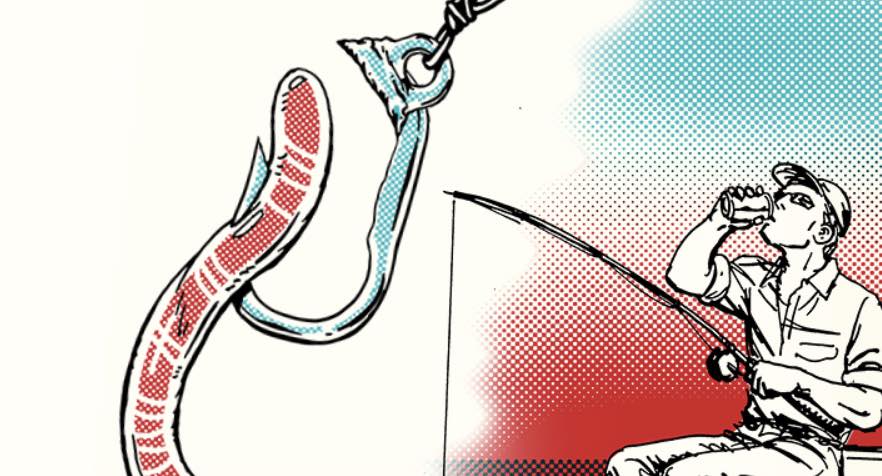Within the thirteenth century, philosopher-theologian Thomas Aquinas wrote a few vice he known as “effeminacy.” Whereas the time period can sound off-putting or old school, Aquinas wasn’t speaking about mannerisms or gender.
Somewhat, for Aquinas, effeminacy meant ethical softness: failing to persevere in one thing good since you’d reasonably be snug and keep away from ache. The title displays the traditional affiliation of softness with femininity, however Aquinas noticed the vice as a failing in women and men alike — a black mark on the character of each.
Aquinas additionally believed there was a treatment to this ethical softness: fortitude.
Fortitude, or braveness, is the advantage that helps you endure adversity for the sake of the Good. It’s the spine that lets you do the suitable factor even whenever you actually don’t really feel prefer it.
Beneath, we’ll unpack what Aquinas meant by effeminacy, why it sabotages the Good Life, and 4 methods to strengthen your fortitude.
What Is Effeminacy, Based on Aquinas?
In his Summa Theologica, Aquinas writes:
A person is claimed to be effeminate if he provides up an excellent on account of difficulties that he can’t endure, as a result of he’s too hooked up to pleasure or too averse to ache.
For Aquinas, effeminacy (mollities, Latin for “softness”) was a weak point in character; it was the shortcoming to stay with virtuous pursuits and stand up to difficult circumstances due to a scarcity of toughness and an inordinate want for consolation.
Briefly, effeminacy meant being an ethical sissy.
Why Being a Sissy Is an Impediment to the Good Life
Based on Aquinas, effeminacy is an impediment to advantage.
Aquinas was an Aristotelian. So by his reckoning, the Good Life is a lifetime of advantage: ordered, purposeful, and directed towards the best values.
However generally, residing virtuously is difficult.
It typically requires sacrifice, self-discipline, and the flexibility to endure discomfort. Typically, doing the virtuous factor means going in opposition to your private pursuits and wishes.
Effeminacy folds when the going will get powerful.
You don’t should be a medieval monk or an Athenian thinker to acknowledge this in your individual life. Simply think about the moments you’ve:
Prevented a dialog with a pal or member of the family as a result of it might be awkward.Skipped a exercise since you simply weren’t “feeling it.”Used alcohol to numb the ache of a nasty day at work.Snapped at your children since you had been in a nasty temper as a substitute of controlling your feelings.Didn’t communicate up at work about unethical conduct happening since you had been afraid of what it might do on your promotion prospects.Give up a brand new, edifying interest since you had been annoyed with how gradual your progress was.Spent frivolously as a substitute of sticking to your finances.
The Reverse of Effeminacy: Fortitude
The flip aspect of ethical sissyness is fortitude: the flexibility to face agency in difficulties. In his Summa Theologica, Aquinas explains that fortitude is all about holding quick to what’s good and proper, even when hazard is respiration down your neck or discomfort is tempting you to stop. Fortitude is the psychological and religious backbone that retains you from giving up on the first inkling of hardship or concern.
For Aquinas, the flexibility to endure discomfort whereas holding on to the Good is a key function of fortitude.
Positive, you may make the laborious alternative in the direction of advantage as soon as, however are you able to do it time and again, day in and time out for weeks, months, or years, when it might simply be simpler to surrender?
One other essential aspect of Thomist fortitude is that it isn’t reckless. It’s about doing the laborious and perhaps harmful factor — guided by motive. Like the great Aristotelian that he’s, Aquinas sees fortitude because the golden imply between cowardice and rashness.
4 Methods to Strengthen Your Thomist Fortitude and Give up Being a Sissy
1. Get Your Loves in OrderEffeminacy occurs whenever you love consolation greater than you’re keen on a higher good. It springs from disordered loves: giving your coronary heart an excessive amount of to issues which aren’t worthy of it, and too little to that which is.
When you say you’re keen on energy, however you possibly can’t rise up within the morning to raise weights, you then actually love your mattress greater than you’re keen on energy.
Aquinas believed considering the goodness of the Good was one approach to achieve higher love for the issues which deserved it. One other was to decide on to affiliate with those that modeled the Good, thereby internalizing their instance. However he primarily considered love as an act of the desire reasonably than a sense — that the extra you intentionally practiced the virtues, the extra your wishes would align themselves appropriately.
Every time you select courageously (enduring discomfort, ache, or concern for what’s really essential), you’re strengthening your attachment to greater items and loosening your attachment to lesser comforts. Fortitude is discovered within the train of it.
As you train fortitude and your loves develop into rightly ordered, the attraction of upper items grows stronger, and the pull of lesser items diminishes. If you genuinely favor advantage to fleeting comforts, selecting rightly turns into extra ordinary and pure, requiring much less effort or pressure every time.
Fortitude by no means turns into pointless — it should at all times act because the guardian of the Good. However when your loves are rightly ordered, braveness turns into extra intuitive.
2. Carry out a Weekly Fortitude Self-Examen
We’ve talked about self-examens as a robust religious self-discipline to enhance your self. Right here’s an Aquinas-inspired fortitude/effeminacy examen you should utilize every week:
The place did I select ease over one thing essential?The place did I stop too quickly on a worthy objective?When did I embrace issue and do the suitable factor regardless of discomfort?
This sincere stock sheds gentle on patterns of softness and the place you possibly can enhance, and it exhibits you the place you’re rising in fortitude.
3. Search Out Small Hardships
If ordering your loves by selecting advantage over consolation is the first approach to train your fortitude, performing troublesome duties of any type will be thought of “accent work” for additional strengthening your braveness.
Incorporating small acts of intentional hardship into your life may also help develop your resolve:
Quick from a meal or a favourite indulgence.Get up earlier as a substitute of snoozing.Take a chilly bathe.Communicate up in a state of affairs at work the place you’d often keep silent.
For extra on difficult your self, take a look at these AoM sources:
4. Persevere within the Boring and Mundane
Fortitude isn’t nearly dealing with dramatic challenges. Keep in mind, for Aquinas, a key function of fortitude is the flexibility to endure within the Good even when it’s laborious. Apply perseverance in small virtuous habits even when motivation flags that can assist you construct up endurance for the massive essential challenges in life:
Hold figuring out even whenever you cease feeling prefer it.Hold praying/meditating, even when it’s dry or boring.Hold budgeting, even when an impulse purchase tempts you.Hold volunteering or serving to a pal in want, even when outcomes are gradual.
Little every day acts of endurance just like the above may also help you to construct up your fortitude muscle tissues whereas burning off your ethical flab.
Conclusion
Effeminacy, in Aquinas’s sense, is letting consolation name the pictures, inflicting you to desert good issues on the first signal of issue.
Its antidote is the advantage of fortitude: holding regular in adversity to pursue what’s proper and worthwhile.
Begin small. Select discomfort over ease in only one occasion in the present day.
Then do it once more tomorrow.
And the following day.
Stack these laborious decisions on high of one another, brick by brick, and also you’ll construct the form of man Aquinas thought value emulating: resilient, disciplined, and decidedly un‑gentle.
That’s the way you construct fortitude . . . and stop being a sissy.







